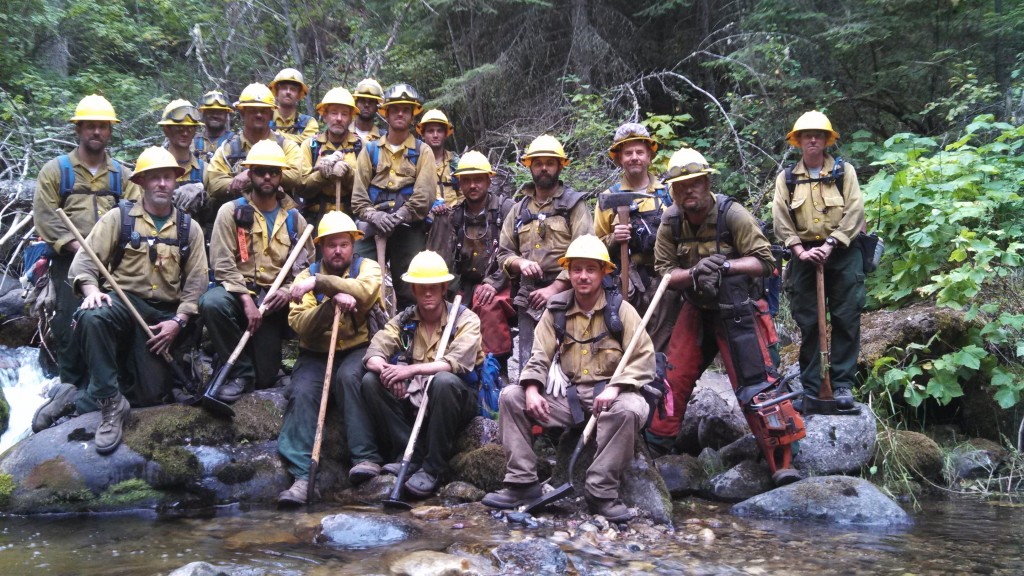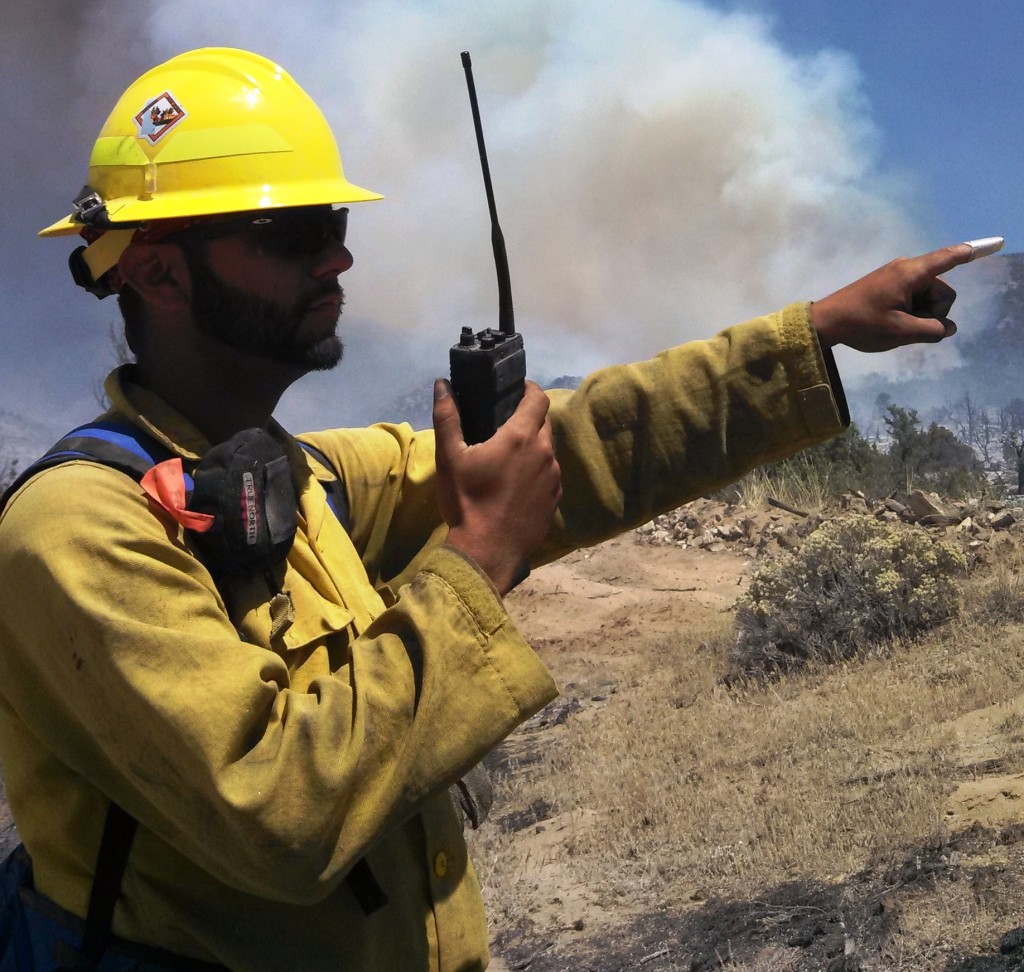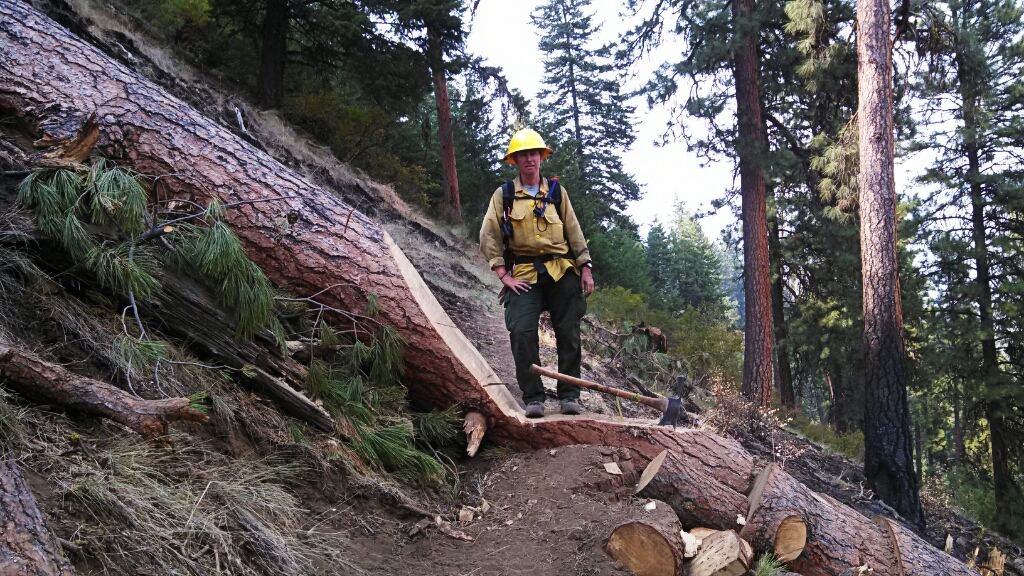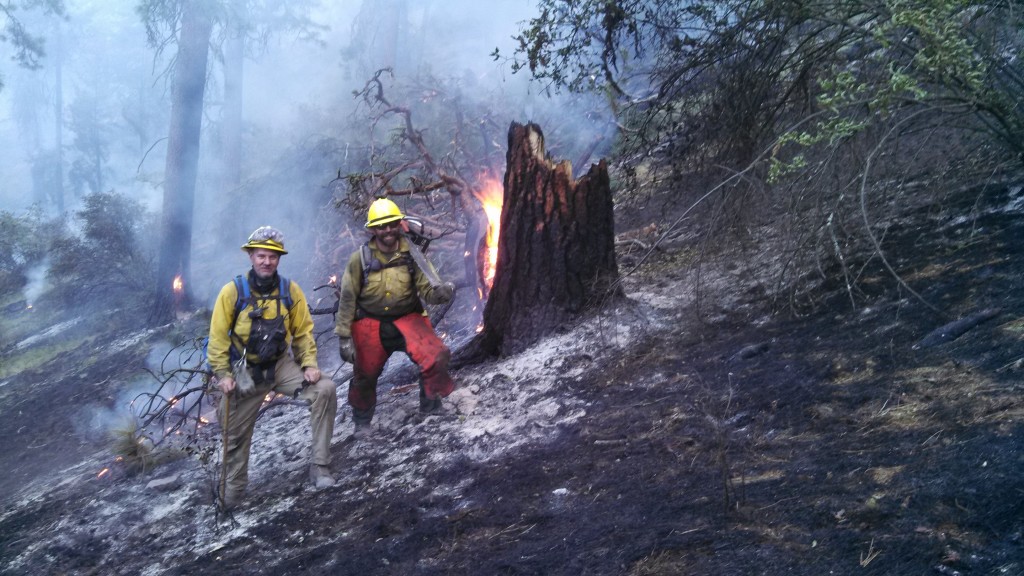Do you have what it takes to fight a wildfire? http://de.gov/wildfire
The Delaware Forest Service is seeking motivated, qualified trainees for its wildfire crew.

The Delaware Forest Service (DFS) is seeking qualified and interested individuals to participate in its upcoming series of wildfire training classes at the Delaware State Fire School. Ideal candidates should be: at least 18 years of age, physically and mentally fit, motivated to learn, and willing and able to travel for up to two weeks or more (usually during the summer months) for out-of-state fire assignments. Previous firefighting experience is not required. While current members of a volunteer fire company can register through their organization, those without prior firefighting experience must contact Henry Poole, DFS Wildland Fire Program, by phone: (302) 698-4548 or email: henry.poole@delaware.gov to get authorization before enrolling in the classes. The deadline for course registration is January 3, 2014.
The first course, “S-190: Introduction to Fire Behavior/Incident Command System,” will be held on January 18 and 19, 2014 from 9 a.m. to 4 p.m. each day at the Delaware State Fire School, 1461 Chestnut Grove Rd, Dover, DE 19904, 302-739-4773. The second set of classes, “S-130: Basic Wildland Firefighting,” will be taught at the Fire School over the course of two weekends: March 1 and 2, 2014 and also March 8 and 9, 2014, from 9 a.m to 4 p.m. each day. The cost of S-190 (January) is $50 (including lunch both days) and the cost of S-130 (March) is $100 (including lunch every day), with remittance payable to the “Delaware State Fire School.”
Link to Registration Form*(PDF)
Link to 2014 Training Schedule* (PDF)
Both S-190 and S-130 are required for prospective firefighters to attain “red-card” certification from the National Wildfire Coordinating Group (NWCG), the lead agency that oversees wildland firefighter training in the United States. In addition to basic coursework, candidates must also complete a rigorous “work capacity” or “pack test,” which involves carrying a 45-pound pack over a three-mile course in under 45 minutes. The capstone of the wildfire training series is the Delaware Forest Service’s annual “Fire Camp,” which will be held on Saturday, April 26, 2014 at Redden State Forest in Georgetown, Sussex County. The one-day seminar features intensive, hand-on training in a range of wildland firefighting tools and strategies, culminated by a “live-burn” exercise designed to simulate conditions on an actual fire assignment.
To fully complete the entire training series, it is imperative for potential candidates to register for S-190 by the January 3, 2014 deadline.
Delaware’s wildland fire program is coming off another successful year: in 2013, the Delaware dispatched two 20-person teams to out-of-state assignments through the National Interagency Fire Center: one crew battled an 85,000-acre blaze near the town of North Pole, Alaska in July while another crew traveled to Utah before completing an assignment in the steep, mountainous terrain of Idaho’s Payette National Forest. Crews are trained and dispatched by the Delaware Department of Agriculture Forest Service and are comprised of both men and women of varying ages and backgrounds who represent a mix of public agencies, nonprofit groups, volunteer fire companies, and private citizens—each with a keen interest in firefighting and a sincere desire to help others.


Despite its small size, Delaware has achieved a well-earned reputation among national agencies for the quality, performance, and training of its firefighting personnel. Over the past 15 years, the First State has also dispatched personnel to aid in other national or regional emergencies, such as hurricane relief crews in Florida and New York.
